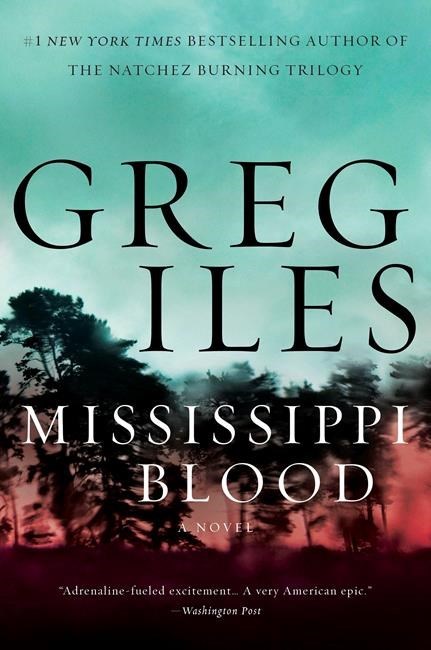
This cover image released by William Morrow shows "Mississippi Blood," a novel by Greg Iles. (William Morrow via AP)
March 20, 2017 - 10:30 AM
"Mississippi Blood" (William Morrow), by Greg Iles
"Mississippi Blood," the concluding novel by Greg Iles in a trilogy featuring lawyer Penn Cage, is part fast-paced crime thriller and part tense-but-tedious courtroom drama.
All of it flows darkly around racial mysteries and revenge along the Mississippi River.
The legal case involves Cage's father, Dr. Tom Cage, a beloved physician in Natchez. He is charged with killing his former nurse, Viola Turner. The Cages are white, the nurse an African-American dying of lung cancer who asked him to inject her with morphine to end her life.
Those agreed-upon facts, however, are just the beginning of a court case and Penn Cage's fight for justice that takes readers into many far-from-the-courthouse venues. They include a world of racist mayhem by violent white supremacists and the searing consequences for blacks and whites alike as the South struggles with the sins of its past.
"Mississippi Blood," like the two previous novels — "Natchez Burning" (2014) and "The Bone Tree" (2015) — is a thick book running several hundred pages. But Iles draws his characters so well, and brings off scenes so deftly, that it is only on occasion that the story seems to drag.
The defence lawyer for Dr. Cage, Quentin Avery, and the prosecutor, Shadrach Johnson, are both black, as is the presiding judge, Joe Elder, and all are so vividly described — Avery is a diabetic with a motorized wheelchair — that they at times carry the narrative just by their engrossing personalities.
The trial of Dr. Cage consumes much of the narrative. While the dialogue is mostly sharp and keen to legal decorum, Penn Cage repeatedly screams to himself that Avery should be objecting to one impermissible prosecution tactic or another. This occurs so many times that the reader may finally want to shout: "I object!"
But Iles can write beautifully and his subject matter is far more serious than the run-of-the-mill mystery or crime thriller. Characters actually discuss the real-life biracial writer, James McBride, and his celebrated memoir, "The Color of Water," as well as Atticus Finch defending the wrongly accused black Tom Robinson in the Harper Lee classic "To Kill a Mockingbird."
Iles' landscape, the river city of Natchez and its environs, is one he knows and describes well, and his sense of the South's history and its current conflicts is evident throughout as he brings his "Natchez Burning" trilogy to an end.
___
Online:
http://www.gregiles.com
News from © The Associated Press, 2017